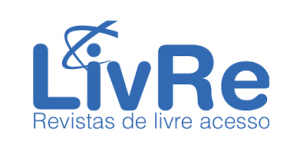LIMITES DE APLICAÇÃO DA INTELIGÊNCIA ARTIFICIAL NO DIREITO PENAL NO ÂMBITO DAS GARANTIAS CONSTITUCIONAIS PENAIS
DOI:
https://doi.org/10.55839/2358-7008RCDv13n1pa116-132Abstract
This paper addresses the limits of the use of Artificial Intelligence (AI) within the scope of Criminal Law, analyzing its application in line with the principles laid down in the Federal Constitution and the Brazilian Criminal Code, such as the principle of due process of law and the individualization of punishment, as well as the rights guaranteed in the Inter-American Convention on Human Rights, to which Brazil is a signatory. This raises the question: is it feasible to use the tools that come from Artificial Intelligence within the scope of Brazilian Criminal Law? It is necessary to ask whether these technologies are effective for neutral and objective decision-making, recognizing that they are important tools to help relieve the burden on the Brazilian judicial system. The research is based on the need to investigate whether the use of Artificial Intelligence in the jurisdictional and procedural context of Brazilian Criminal Law is in line with the necessary respect for individual constitutional guarantees. The methodology used will be a qualitative approach combining bibliographical and documentary research, with analysis of legislation and practical cases.
Downloads
Published
How to Cite
Issue
Section
License
Copyright (c) 2025 A REVISTA REFLEXÃO E CRÍTICA DO DIREITO utiliza uma licença Creative Commons - Atribuição-Não Comercial BY-NC 4.0 Internacional. Os autores dos trabalhos aprovados autorizam a revista a, após a publicação, ceder seu conteúdo para reprodução em indexadores de conteúdo, bibliotecas virtuais e similares. A revista se permite o uso dos trabalhos publicados para fins não comerciais, incluindo o direito de enviar o trabalho para bases de dados de acesso público.

This work is licensed under a Creative Commons Attribution-NonCommercial 4.0 International License.
A submissão de artigos à REVISTA REFLEXÃO E CRÍTICA DO DIREITO está vinculada à licença da Creative Commons CC BY-NC 4.0 internacional. Através desta licença, o autor mantém seus direitos autorais, mas permite, para fins não comerciais, que as pessoas possam copiar e distribuir o seu trabalho, reservando os respectivos créditos, nas condições especificadas.
Ao submeter artigos à REVISTA REFLEXÃO E CRÍTICA DO DIREITO o (a) autor (a) já autoriza sua publicação, em caso de aceitação, após o devido processo de avaliação, ciente da política de acesso livre do periódico.
O autor (a) declara ciência de que serão publicadas todas as informações consignadas na submissão, incluindo nome, afiliação, titulação e endereço eletrônico.
Da mesma forma, o interessado, ao submeter o trabalho no site da revista, DECLARA QUE É AUTOR (A) DO TRABALHO, BEM COMO DO VÍNCULO DAS DEMAIS PESSOAS TAMBÉM APONTADAS COMO AUTORAS, assumindo inteira responsabilidade por tais declarações.
O periódico não cobra nenhum tipo de taxa. Todas as submissões, avaliações e publicações são gratuitas, bem como o seu acesso é aberto e também gratuíto.







